In the second instalment of a two-part feature with the shortlisted finalists of the new IBC Young Pioneer Awards, IBC365 speaks with the seven finalists recognised as the brightest up-and-coming talent.
The IBC inaugural Young Pioneer winner will be a leader, demonstrating a strong strategic vision and the personal skills to influence others.
IBC has recognised that the media, entertainment and technology industry is changing and the next generation is consuming content differently than ever before.
It sought to find people under 30 who have demonstrably gone above and beyond their day-to-day remit to produce positive results and collaborate in a team to influence the industry.
This year’s entrants were narrowed down to seven finalists, each bringing their own brand of pioneering spirit.
The finalists range from technical innovators to creative artists, some with the business acumen to lead teams or start ventures, while others are inspiring those around them.
IBC365 speaks with those shortlisted ahead of IBC2019, where the finalist will be revealed during the Awards ceremony on Sunday 15 September.
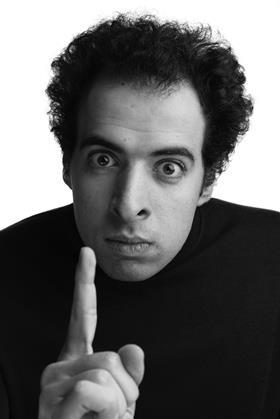
Ahmed Al Ghandour
Host and producer of Al-Daheeh “The Nerd”, an online science show which tackles complex concepts through comedy.
What is your educational background?
I did my undergraduate degree in Biology, and my Master’s in Education. My bachelor made me understand the scientific method to do my literature review in preparation for a particular topic, and my masters helped in developing that content for delivery.
What is your most notable career milestone and achievement?
Establishing a science programme to get up and running with millions of weekly views has been our greatest achievement.
Science isn’t a word that is an easy sell in the Arab world, given the fact that many of our communities are religious and highly doubtful of whatever comes from the West - particularly when discussing things like evolutionary biology or cosmology.
What ways have you applied technology for the better?
The word technology comes from the Greek word “Techne” which means art or craft. Our craft is non electronic, and non-mechanical but more interdisciplinary in approaching education through the techniques of media.
For example, when we listen to scientists speaking about their publications, we also listen to comedians, artists, scriptwriters, directors, and producers and this has made education widely accessible and entertaining.
How have you demonstrated excellence in your job?
Our greatest strength is the team of writers and researchers from different backgrounds.
This has elevated the show dramatically because it means we get new perspectives and topics to the show.
A very influential episode we made was discussing football economics; we couldn’t have made it on our own given our uninterest in football in the first place.
What is your team’s strengths and experience in the industry?
My team has a lot; some were documentary producers, while some worked in the adverting business.
The talents we have means we have great help in setting the tone for the written content and the skilled staff to increase our production value.
What does success look like and what do you hope your lasting legacy is?
We are really pioneering the online education reform with over 300 million views from only 200 videos. I hope we can build a lasting legacy if we took the curriculum our next target.
Creating content to help students and inspire them and we believe there is little advancement intellectually, culturally, socially, personally or technologically that can be done without science philosophy and history, otherwise in loaded countries like ours, clouds of fundamentalism looms.
How important is being shortlisted for the IBC Young Pioneering Award important to you?
IBC is one of the biggest, if not the biggest, media conference in the world and to be around the amazing delegates who attend the event and to learn from them is honourable, let alone being awarded by this amazing community.
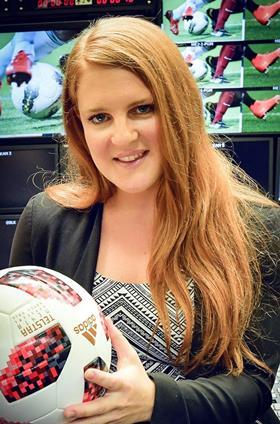
Vera Bichler
Graduate of the HBS Broadcast Academy and the first woman football director for ORF in Austria.
What is your education background and how did you step into your current role?
I have a Bachelor’s degree in Journalism as well as a Master’s degree in Media Management and have always been very interested in sports.
I started working at Olympic Broadcasting Services as OBS and moved to assistant director and graphic operator for the international world feed for all the Biathlon transmissions at the 2018 Winter Olympics in Pyeongchang
Then I joined the European Broadcasting Union as sub-director and assistant director for the international world feed at the Ski Alpine World Championships in Vail/Beaver creek (Colorado) Feb 2015.
In 2012, I worked on the Olympic Games in London, Sochi in 2014 and Rio de Janeiro in 2016 with the Austrian Broadcaster ORF as studio assistant, assistant director, editorial assistant and editor among other operational TV for live distribution.
What is your biggest milestone and achievement?
I was the first female TV Director at the ORF in the sport section last year, while personally I became the world champion in Jiu Jitsu in 2011 in Columbia, California.
- Read more: Interview: Vera Bichler
What ways have you applied technology for the better?
When I started to work internationally, I was the first to develop a spreadsheet for Ski Alpine World Cup races to calculate the estimated event duration based on differing starting times and intervals and because of this, broadcasting stations could get a rough idea about durations of ski races and how much time was needed to cover a specific event.
I was surprised that no one else had thought of this before, so I passed along the tool to the international ski federation (FIS) and all its right holders.
It’s all about making unpredictable live events as structured as possible and have a back-up plan.
How have you demonstrated going above and beyond?
One of my biggest achievements so far was the establishing of the National Women Soccer League in the ORF Sport+ program.
We started last summer to produce the women’s soccer games and I am proud to be part of such a young and dynamic team. Our goal is to have those matches presented, commentated and directed by women.
As an assistant director and sub-director, I am in charge of calling out some of the best slow-motion-shots with our highspeed cameras as well as landscape shots with the cable camera and crane camera. Last winter this broadcasting philosophy has received massive positive feedback from the Austrian media landscape.
What is your pioneering spirit?
Being the very first female TV Director at the ORF in the sport section, I can show my younger female colleagues from the ORF sports department that a boss in TV directing does not necessarily have to be male. They really appreciate being part of my team as I focus on keeping everyone informed about what is happening and the next steps to be taken.
In my experience a lot of mistakes are usually made when there is insufficient communication and I am always happy to enable young talents to follow their passion and stand up for their ideas and dreams.
What does success look like and what do you hope your lasting legacy is?
I hope that one day a woman working as a director is not as outstanding as it seems to be nowadays. I hope gender will not be that much of an issue in the future and as far as success is concerned, I would say being proud of what you have achieved is a huge part of success.
How important is being shortlisted for the IBC Young Pioneering Award to you?
It is very important to me, as it shows that my achievements are acknowledged and people see the hard work I put into my career. There are many talented, hard-working women out there, who achieve a lot and I am proud to be one of them.
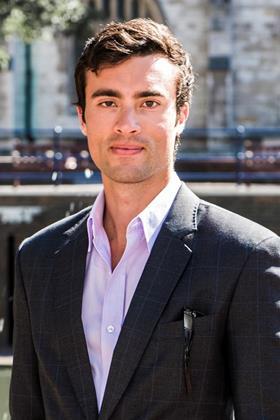
Oliver Janesh Christiansen
Inventor and developer of Cinefade, a camera add-on which allows cinematographers to vary depth of field.
What is your background and how did you step into your current role?
After leaving my film production course at university I started working as a camera assistant and camera operator but always had this one idea on my mind.
Working on set in the film industry allowed me to experience real-world scenarios and do some market research. After a chance encounter with a successful entrepreneur I decided to commit all my time and energy into pursuing my goal of creating a truly novel storytelling tool and I haven’t looked back since.
What is your biggest milestone and achievement?
There have been many incremental milestones and achievements that all add up and it is easy to lose sight of the big picture and see how far you have come.
However, I remember vividly the feeling I had after receiving my first call from a major Hollywood production who wanted to use my system. It was a mixed feeling of excitement that my work had reached the upper echelons of filmmakers and was being accepted as well as nervousness, as I had only just finished my first working prototype and it would be trial by fire. All went well in the end and seeing my name in the credits in the cinema for the first time was great too.
How have you demonstrated going above and beyond?
I never considered myself as having a standard job because when you start out to work on your own idea and commit all your time and energy to it, success is the only option in my mind and going above and beyond every single day is the norm. Whether that’s putting in the hours and working into the early morning or whether it’s flying across the globe to meet a client.
What is your ‘pioneering spirit’?
I believe everyone can have a pioneering spirit with the right motivation. it is all about identifying a novel idea and then turning that into something real and tangible.
I consider myself fortunate that I found my idea early on and was able to not only identify it as novel but then also put in the time and energy to turn it into a successful product.
My idea was very simple but the best ideas often are simple. The difficult part is putting in the work without guarantee of success and that is where ‘spirit’ comes in.
What do you hope your lasting legacy is?
I have never thought about my own personal lasting legacy but I am proud to have made a novel contribution to cinematic storytelling and hope that the Cinefade effect will become a standard tool used by filmmakers for generations to come.
As Cinefade is a completely new way for filmmakers to express themselves through cinematography, creating something out of nothing that people are excited about is one of the definitions of success to me.
How important is being shortlisted for the IBC Young Pioneering Award important to you?
It’s great to be shortlisted for the IBC Young Pioneering Award, as it is a sign that the work I am doing is being accepted and acknowledged and it makes all the hard work worth it.
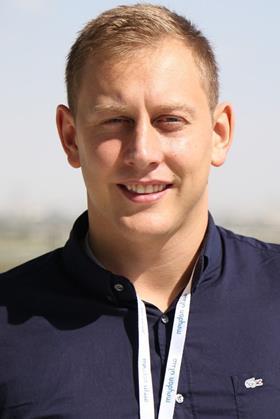
David Harnett
Formerly head of outside broadcast engineering for sound and now head of operations at Timeline Television.
What is your background and how did you step into your current role?
After graduating from Ravensbourne in 2011 I joined Arena TV as a junior sound engineer, two years later I was promoted to sound guarantee engineer, across that time I had the privilege of being involved in some of their top contracts and ad-hoc work.
In 2015, I joined Timeline’s OB Team as their first sound guarantee to a relatively small OB team as part of a much bigger company as a whole. The OB team has since grown considerably to 45 and it has been an honour to be a part of that team during the growth.
What is your biggest milestone and achievement?
In the last couple of years I have been assisting the senior management with a number of high profile bids and contracts including Formula E and the FIFA World Cup and managing the growing number of engineers within the OB sound team.
Since starting the role I have found the responsibilities involved to be extremely challenging but enjoyable and being respected enough to become Timeline’s head of operations is one of my biggest milestones to date.
What ways have you applied technology for the better?
In 2015 I was lucky to be part of the team that designed and built Timeline’s UHD HDR IP truck, one of the first in the world and which was integral to the BBC Sport’s presentation of the FIFA World Cup 2018.
We had a lot of work to integrate SMPTE2110 and AES67 into the truck throughout without compromising on any element in the delivery of any show for the production team.
Explain how you’ve gone above and beyond and the positive results you’ve produced?
I have always taken an active interest in all areas of the business and consider how things could be done better.
I am driven by new technology and also thrive on having good working relationships across the Timeline team but also with our suppliers and clients to ensure we deliver world first technological solutions.
One of my main areas of focus throughout my role will be on processes. If I can help the team to more efficiently deliver productions with less admin and paperwork along the way then I will feel I have achieved this goal.
What is your ‘pioneering spirit’?
I constantly strive to push myself and others forward to innovating new technologies and ways of delivering content. I like to try and help win new contracts with innovations included wherever possible, I also feel it is important to do this whilst not forgetting the existing customers.
What does success look like and what do you hope your lasting legacy is?
I feel that success in business especially within the broadcast industry is about maintaining a good balance between staff satisfaction, efficiency and happy customers.
I hope that my lasting legacy within Timeline is as a person who was always on hand to help both the client and the team.
How important is being shortlisted for the IBC Young Pioneering Award important to you?
Being shortlisted for the IBC Young Pioneering Award is such an honour and I feel privileged to be nominated alongside such fantastic and talented individuals. The IBC Awards celebrates some of the most impressive projects and I am delighted to have been involved in some of them!
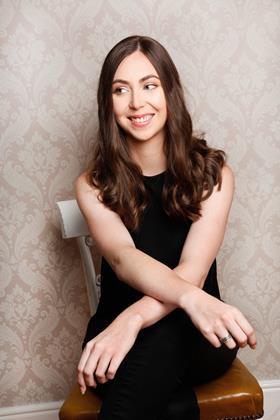
Samantha Kingston
Chief executive of Virtual Umbrella, developer of immersive content, and a mentor for the Prince’s Trust, helping young people start businesses.
What is your background and how did you get where you are today?
I started my career in the theatre world where I used to manage and run around looking after events and the public. There has always been a technology aspect to my roles, so when the opportunity came along to work in the virtual reality industry, while it was a challenge, I was ready to jump on.
Finding my passion has allowed me to start my first business and continue to be blown away by the technology advancements and creative content being made for this industry.
What is your biggest milestone and achievement?
Starting a brand-new business in an emerging industry is an incredible achievement.
What ways have you applied technology for the better?
I have always believed that technology should be used for a purpose and that is why I have loved seeing the impact of telling stories in 360 and Virtual Reality (VR).
In my recent project Anonymous, I chose to use VR as it has the power to allow people to experience a story that is not often told.
How have you demonstrated going above and beyond?
I like working with people and with every project I have worked on I want the client to have the best experience.
We don’t just complete a task we go out of our way to offer much more.
How has you seen the technology industry evolve?
I started in the games industry when I first was introduced to VR. I started when headsets were not available to purchase, and we were still experimenting with how it worked.
I always believed that VR is incredibly powerful with the right content and when it’s shows properly, and this led me to my business Virtual Umbrella.
We support people working and creating content and we work with people we believe in and are making a difference, through solutions or storytelling.
What is your ‘pioneering spirit’?
Being honest and kind to everyone.
What do you hope your lasting legacy is?
Success to me is giving opportunities to others and offering a platform because it can be incredibly hard in the beginning and so at any chance, I have to help someone starting out I will.
That’s what I want to be known for – giving a stage to others.
How important is being shortlisted for the IBC Young Pioneering Award important to you?
Being a young woman working in the technology industry can sometimes be difficult, so this award is such an important award to give voices and let young pioneering people be seen.
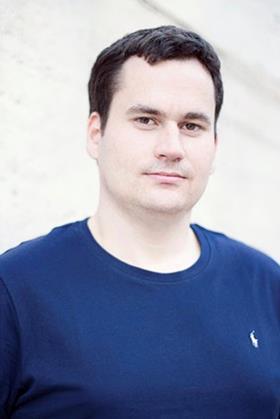
Matej Michalko
Blockchain pioneer and founder and chief executive of Decent, a software platform company in Slovakia.
What is your background and how did you step into your current role?
I studied IT in Switzerland, when I first started my interest in how bank systems work during the financial crisis of Greece. I discovered Bitcoin and saw the potential in the technology that fuelled bitcoin, blockchain. Inspired by the potential of blockchain, I founded DECENT in 2015.
What is your biggest milestone and achievement?
Together with my team, we have proudly built a well-established company that employs over 100 people in several countries across the world. We are headquartered in Slovakia, but we also have a strong presence in China with offices in South Korea, Vietnam and Indonesia.
What ways have you applied technology for the better?
We developed various use-cases of blockchain application. In the beginning, we started with digital content distribution, where blockchain was able to cut middleman costs such as publishers and their hefty commission pay-outs.
Last year, we also participated in Token4Hope, an award-winning project to help families in need in Vienna. Its aim was to bring transparency for charities with the use of blockchain.
How have you demonstrated excellence in your job?
Established four years ago, we are one of the oldest blockchain companies and we have a fast and efficient blockchain ecosystem ready for real-world application. We look forward to improving many industries with the power of blockchain in the coming years.
What are your career highlights?
I have been involved in the blockchain industry for more than eight years. Some of the highlights included my participation in the first global bitcoin conferences in London and Shanghai.
I also started the world’s first Bitcoin marketing agency, the first Cryptocurrency eGaming consulting firm and advised the Isle of Man in establishing a centre of excellence for blockchain development.
What is your pioneering spirit?
I believed in the potential of blockchain technology far before the initial ICO hype during the rise of Bitcoin price in late 2017.
I founded Decent in 2015 and managed to become one of the most successful ICOs of 2016. In a highly competitive market, we focus on improving our blockchain technology and that is one of the reasons why Decent is still growing today.
What does success mean to you?
Success is to do what you are passionate about and make it a career. Blockchain technology is something I truly believe in and I am certain it will have a long-term positive impact on people’s lives for the better.
How important is being shortlisted for the IBC Young Pioneering Award important to you?
Our entire team at Decent works hard every day to promote blockchain for mass adoption. It’s an honour to be recognised for our team’s efforts and we are proud to be nominated for this award.
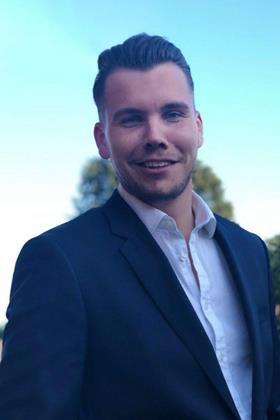
Dominik Wrona
Global OU Manager at BT Media & Broadcast, where he is also responsible for the business’s graduate and apprenticeship programme
What is your background and how did you step into your current role?
I began my career in BT on a business management graduate programme straight out of university.
I was lucky enough to have been placed in the media and broadcast team and it has certainly been ‘love at first sight’ as I have never considered a career in the broadcasting industry.
My first job in BT was working for the head of outside broadcast at the time, an experience which I will look back on as one of the most influential periods in my professional life. I left the team to expand my knowledge and started working in strategy for BT Ventures with a view to come back one day to the outside broadcast team, luckily a role became available and I knew that was it.
What is your biggest milestone and achievement?
To mention a few:
- Wimbledon Tennis Championships in UHD
- English FA Cup final in UHD
- Champions League final in UHD HDR
Managing a portfolio that enables those events for the biggest broadcasters on this planet is what makes this role so special. I also think that our next generation outside broadcast platform which delivers the English Premier League is an outstanding piece of engineering, carrying unprecedented number of visions and data week in week out.
I think that we are in a (Premier) League of our own when it comes to scale and reliability of that operation.
What ways have you applied technology for the better?
The nature of the portfolio I manage allows us to directly impact what the broadcasters want to achieve and indirectly what the consumers are able to see and interact with at home. We keep pushing the boundaries to improve the quality and reliability of each and every service we offer.
Having built a market leading UHD contribution offering we can proudly say that we are one of the reasons why consumers enjoy the highest quality of live television ever seen.
We are also determined to make a positive impact on the society by implementing initiatives such as BISS CA encryption for our premium events reduce the illegal streaming market on the web.
How have you demonstrated excellence in your job?
It has always been about our customers I firmly believe that the best outcomes are achieved by working together, not as a supplier and customer but as partners.
Having a deep understanding of the challenges our customer’s face, enabling solutions and driving innovation, I see as the most important factors to produce positive results.
What are your career highlights?
Working in the outside broadcast space as a graduate to managing the entire offering. I think it’s the intensity and variety of tasks performed which makes it so positively addictive.
Being in the early stages of my career, I think there is a lot more I wish to experience and experiment with, but I certainly want to remain in this unique industry.
What is your pioneering spirit?
I am not afraid of exploring the so-called untrodden paths. You don’t always get the desired outcome, but you come out on the other side richer in experience.
What does success look like and what do you hope your lasting legacy is?
Achieving something that has not yet been achieved.
How important is being shortlisted for the IBC Young Pioneering Award important to you?
It’s a real honour to be shortlisted for the first Young Pioneer Award. Hopefully this inspires many, creating a next generation of leaders in the broadcasting industry.
- Read more: Q&A with IBC Social Impact Award Finalists
























No comments yet